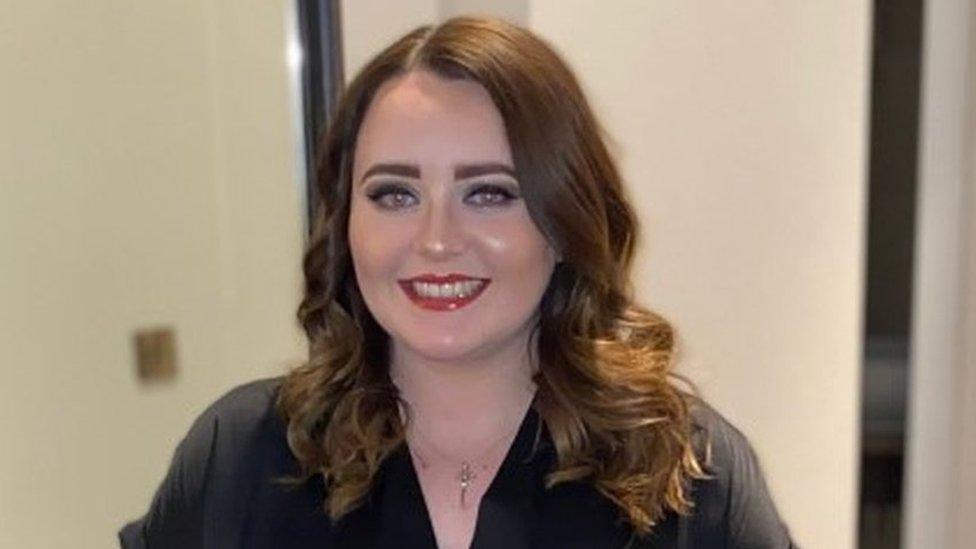EIS teaching union backs pay deal to end school strikes
- Published
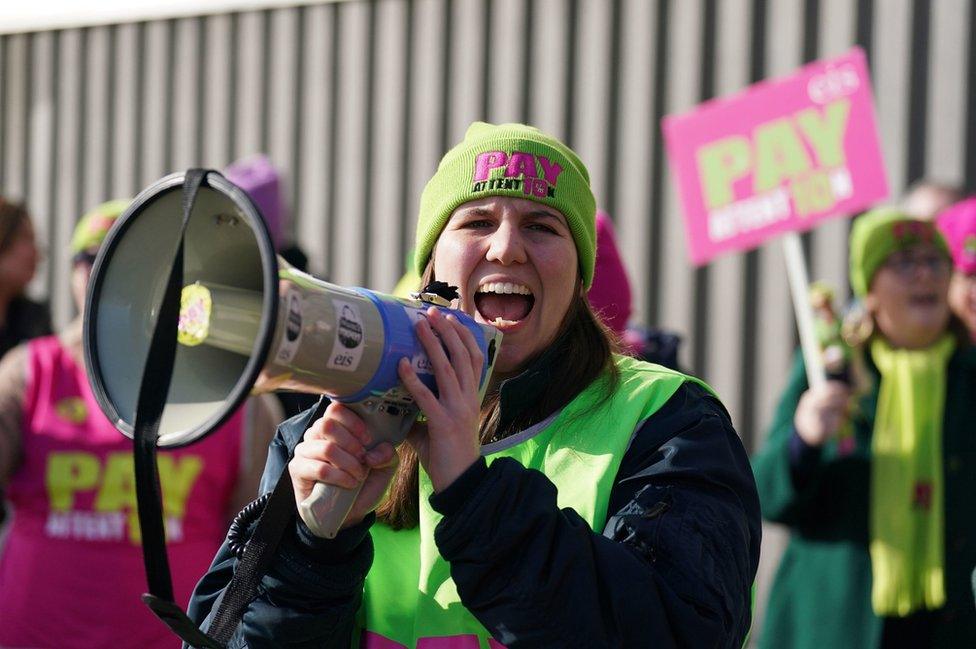
Members of the EIS union have been voting on the latest pay offer
Members of Scotland's largest teaching union the EIS have accepted a pay deal to end long-running school strikes.
Teachers will receive a 7% pay rise backdated to last April, a further 5% next month and 2% in January.
The union suspended strikes last week when the pay offer was made. The EIS said 90% voted for the deal, from a ballot turnout of 82%.
Education Secretary Shirley-Anne Somerville said it was a "fair, affordable and sustainable" offer.
The EIS said that pay for most teachers would increase by 12.3% by next month, then 14.6% by January 2024.
General Secretary Andrea Bradley said: "While it does not meet our aspirations in respect of a restorative pay settlement, it is the best deal that can realistically be achieved in the current political and financial climate without further prolonged industrial action.
"It compares favourably with recent pay settlements across the public sector, and does provide pay certainty for Scotland's teachers until the next pay settlement is scheduled in August 2024."
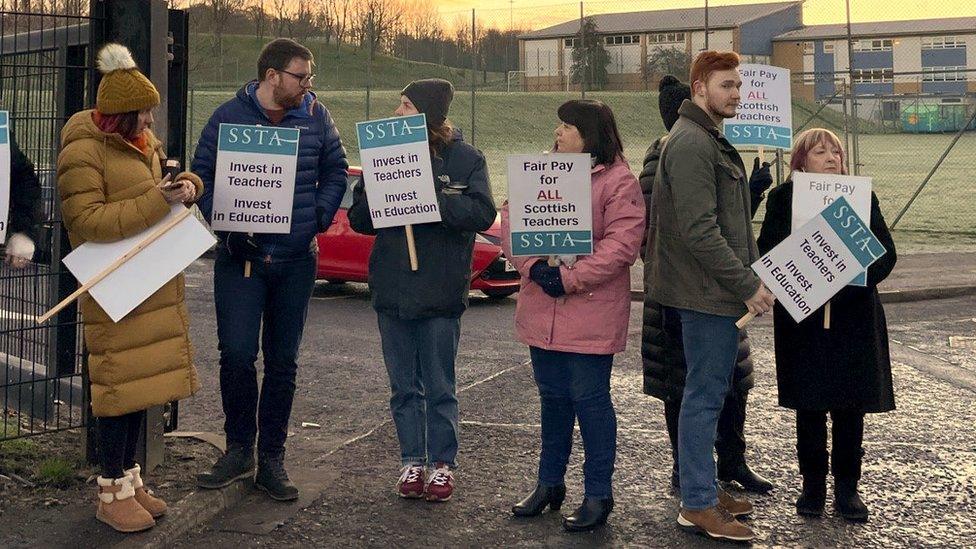
Members of the SSTA have also voted to end industrial action
The EIS, SSTA and NASUWT teaching unions have been in a year-long industrial dispute with councils.
The deadlock was broken last week when councils, using extra money from the Scottish government, made a fresh offer that would see most teachers' salaries rise by £5,200 in April.
The EIS paused targeted strikes that were being held in constituencies of senior politicians including First Minister Nicola Sturgeon and Deputy First Minister John Swinney.
On Thursday, members of the SSTA also voted overwhelmingly to accept the deal.
The NASUWT union said it would ballot its members on the offer, but described it as "paltry" and said it fell short of what teachers wanted.


The teachers' strike is now effectively over. Two of the three unions which represent classroom teachers - the EIS and the SSTA - have now said they will accept the pay offer.
The third - the NASUWT - is urging rejection and is still consulting its members. The AHDS, representing heads and deputes, also intends to accept it. This means that the pay offer will almost certainly be put into effect.
As is often the case in industrial disputes, the resolution is a compromise. Both sides gave ground.
The 7% rise for 2022-23 is below the 10% pay claim. The 5% this April followed by a further 2% in January is still below inflation. But it is still better than the offer made just before the strikes started - worth around 5% for the majority of teachers.
However few teachers will feel like celebrating a victory. Many were saddened that industrial action on this scale was necessary and were all too aware of the potential impact of strikes on children, teenagers and families.
The unions had hoped the mere threat of a strike would have proved sufficient.
With the pay dispute over, the question is whether the relationship between teachers' unions, employers and the Scottish government has been damaged.

Teachers had initially demanded a 10% increase this year, with the dispute seeing almost all schools in Scotland closed by a series of strikes.
The pay deal follows talks between the EIS, Shirley-Anne Somerville and John Swinney last week.
Ms Somerville welcomed the EIS ballot result and said it was an "historic" deal.
She added: "Teachers in Scotland are already the best paid in the UK and this deal will mean a salary rise of £5,200 in April for most teachers, and a cumulative rise of 33% since January 2018.
"A resolution to this dispute and an end to the threat of further strike disruption in our schools will be a huge relief for children, young people, parents, carers, and teachers, too."
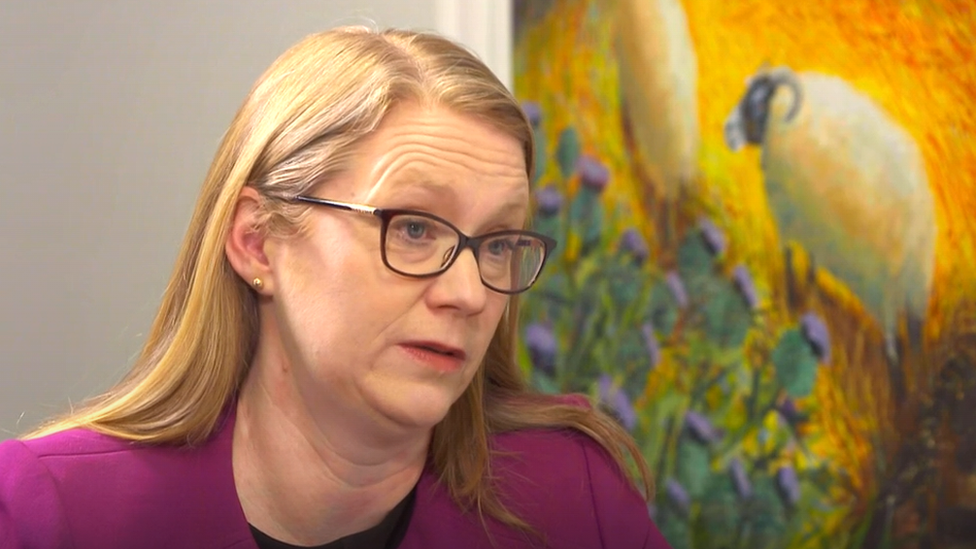
Education Secretary Shirley-Anne Somerville said the offer was the most generous in more than 20 years
The Scottish Conservatives accused Ms Somerville of being "asleep at the wheel" over the strike action.
Party education spokesman Stephen Kerr MSP said: "It would never have lasted this long - and caused so much disruption to our children's education - had Shirley-Anne Somerville been on top of her brief and shown the required urgency to resolve it."
Scottish Labour also criticised Ms Somerville for taking too long to reach the settlement.
Education spokesperson Michael Marra MSP said: "The SNP government needs to take a long, hard look at its approach to industrial relations.
"The delay tactics have hurt Scotland's pupils, who have now missed a full week of learning in this academic year."
Scottish Lib Dem education spokesperson, Willie Rennie MSP, said it was a "travesty" that it took so long for an agreement to be reached.
He added: "The prolonged and bitter dispute has caused unquantifiable harm to the relationship between the teaching profession and an SNP government that told them they were paid more than enough."
- Published3 March 2023
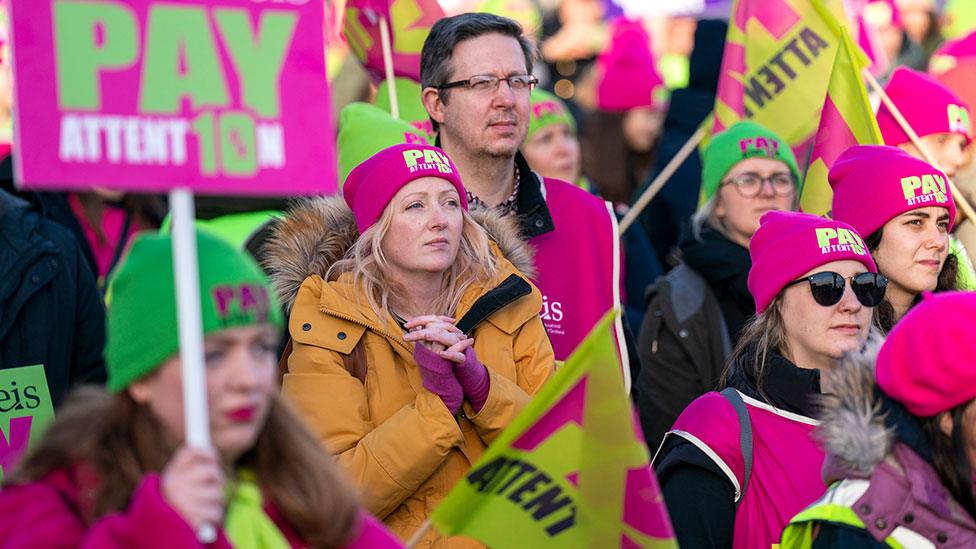
- Published9 March 2023

- Published28 February 2023
